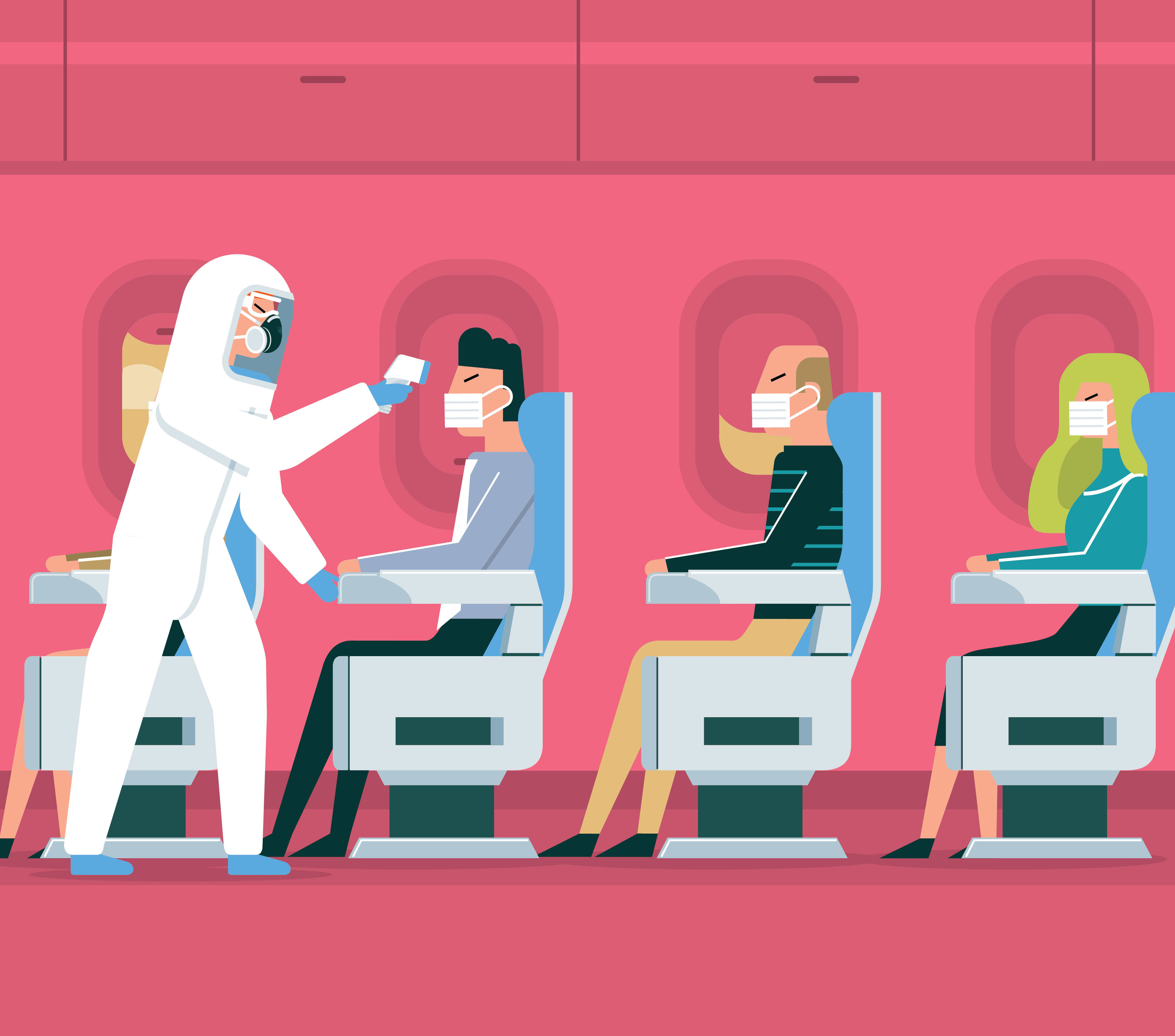Products You May Like
A study conducted earlier this year shows there may be a way to reduce the number of Covid infections on board commercial airplanes to virtually zero.
Results of the study appeared in a peer-reviewed article published on Sept. 1 in the Mayo Clinic Proceedings medical journal. The article — a joint effort by Mayo Clinic, the Georgia Department of Public Health and Delta Air Lines — showed that that one polymerase chain reaction (PCR) test performed within 72 hours of flying decreased the rate of infected travelers onboard to 0.05%. That’s five people for every 10,000 passengers.
At the time of the study, the rate of infection in the U.S. was 1.1% — or about 1 in every 100 people.
‘A pretty darn low number’
The findings analyzed data from Delta’s preflight testing program which ran from December 2020 to May 2021.
Here’s how Delta’s testing program worked: Passengers on select flights from New York City and Atlanta could fly to Italy, without having to quarantine upon arriving, if they tested negative for Covid-19 via a PCR test within 72 hours before the flight, a rapid antigen test prior to departure, and a rapid antigen test upon landing.
Of the 9,853 people who tested negative via the PCR test, four tested positive at the airport via rapid antigen tests. The diagnoses were confirmed via a rapid molecular test, and these people were not allowed to fly.
Of the passengers who flew to Italy, one tested positive upon landing.
This translates to one case detection per 1,970 travelers “during a time of high prevalence of active infection in the United States,” according to the article.
“That’s a pretty darn low number,” said Dr. Aaron J. Tande, the lead author of the article and an infectious disease specialist at Mayo Clinic in Rochester, Minnesota.
The study suggests one PCR test within three days of flying renders subsequent testing at the airport largely unnecessary, especially when combined with onboard masking requirements and increasing vaccination rates among flyers.
‘Limitations’ of the study
The journal article mentions several “limitations” which may have affected the study’s results, including the role preflight tests had on traveler behavior. Participants with suspected Covid infections may have chosen not to travel. Others may have been more diligent about wearing masks and self-isolating knowing that they had to test negative in order to fly, said Tande.
“I can’t say that that’s what made the number of tests that were positive so low — or was it truly that the 72-hour test was so good,” he told CNBC. “But … the end result is that it’s a safer flight for people, and that’s what we want.”
If you repeated the study now… I think you would see a significant decrease in the rate of infection on board.”Dr. Aaron J. TandeMayo Clinic
Tande said that the findings are based on the Covid-19 strains that were circulating in the United States in the first half of 2021, not the more contagious delta variant that dominates now.
“I don’t think that you could say that if you repeated the study now — with a different rate of community infection and a different virus — that you would get exactly the same result,” he told CNBC. “I think you would see a significant decrease in the rate of infection on board.”
Safer but less feasible options
The pilot program considered five testing strategies, two of which may have detected even more infected flyers.
For example, a single rapid molecular test at the airport may have found more infections because it minimizes the time between testing and flying, and thus could catch infections which occur during that time. Adding on a 72-hour PCR preflight test would likely find even more, according to the study.
However, one preflight PCR test is the “better approach” because it is more feasible, said Tande. PCR tests are widely available, more “sensitive” — meaning they are better at detecting positive cases – and they take the logistics of testing out of airports, he said. Advance testing also gives infected travelers time to reorganize their plans, rather than surprising them just before their flights depart.
Testing or vaccinated flights?
Preflight PCR tests may make flying safer, but most passengers are flying now without one. And airlines are tight-lipped about mandating them in the future.
However, testing could become a de facto rule on international flights if arrival countries require them for passengers to enter. A spokesperson for Delta Air Lines declined to say whether it would mandate testing for its passengers but said that “each country’s government is responsible for establishing their own requirements.”
Tande said he would feel safer taking a flight that required passengers to pass preflight PCR tests. Yet, if given the choice, he said he preferred a vaccination-only flight more.
“I would definitely go for the vaccinated flight — and (I’d) mask up,” he said.
Qantas CEO Alan Joyce said last week that passengers will be required to be vaccinated on its international flights, according to news.com.au. U.S. officials are currently debating whether to require vaccinations to fly both domestically and internationally, as reported this week by The Washington Post.
“Unfortunately, because of vaccination attitudes, Covid is going be with us for a long time,” said Tande. “With ongoing masking and testing before flying … we can improve safety so that we can continue to sort of function as a normal society.”
